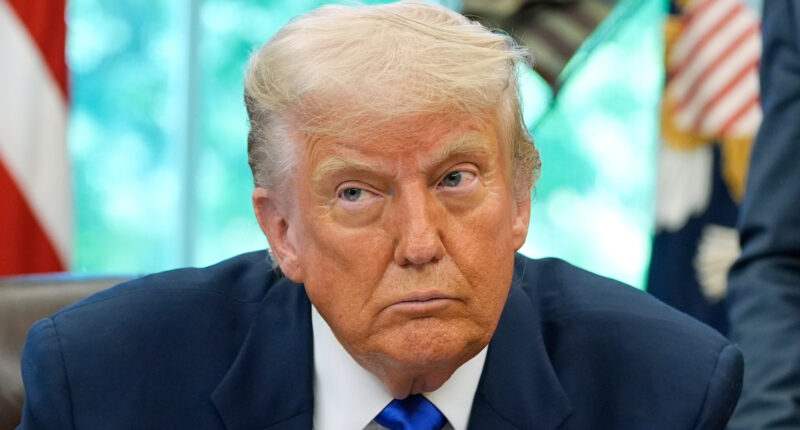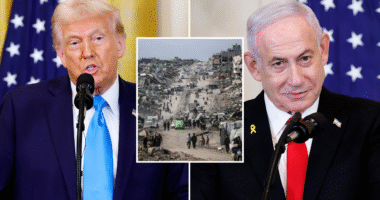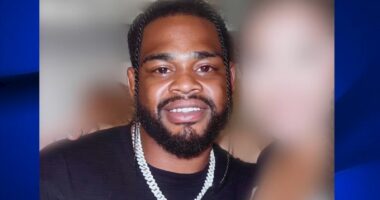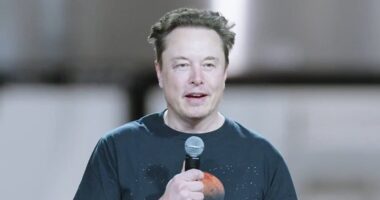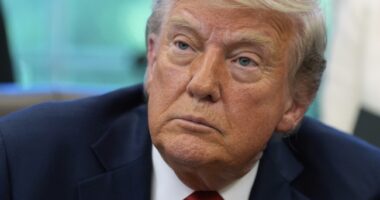Canada’s new prime minister, Mark Carney, clinched the position by pledging to address the heightened aggression displayed by President Donald Trump – a promise he will soon have the chance to fulfill during a scheduled meeting at the Oval Office on Tuesday.
Trump has disrupted a long-standing partnership by expressing his desire to incorporate Canada as the 51st U.S. state and imposing significant tariffs on a crucial ally involved in auto manufacturing, oil supply, electricity, and other commodities. The backlash provoked by Trump’s actions played a key role in helping Carney’s Liberal Party secure a remarkable comeback victory last month, as the ongoing trade disputes and affronts to Canadian autonomy have angered the electorate.
The President, a member of the Republican Party, has reiterated his commitment to his ambition of making Canada the “51st state.” During an interview with NBC’s “Meet the Press” aired on Sunday, he described the border as an “artificial line” that obstructs the creation of a unified and “beautiful country” incorporating both territories.
Trump’s openly adversarial approach has raised questions for Carney and other world leaders on how to manage relations with the U.S. Some world leaders, such as the United Kingdom’s prime minister, Keir Starmer, engaged in a charm offensive. Others, such as Ukrainian President Volodymyr Zelenskyy, were met by Trump with anger for not being sufficiently deferential.
Robert Bothwell, a professor of Canadian history and international relations at the University of Toronto, said Carney shouldn’t meet with Trump.
“We’ve seen what he does. We saw what he did with Zelenskyy,” Bothwell said. “And he would sure as hell try to do the same with Carney. It’s not in Carney’s interest. It’s not in Canada’s interest.”
Trump and Carney will meet in the Oval Office and have lunch. Carney has stressed that he was elected to specifically “stand up” to the U.S. president and that Canada is “in a once-in-a-lifetime crisis.” Carney said he expects “difficult” but “constructive” conversations with his U.S. counterpart.
Trump told reporters on Monday that he wasn’t quite sure why Carney was visiting.
“I’m not sure what he wants to see me about,” Trump said. “But I guess he wants to make a deal.”
U.S. Commerce Secretary Howard Lutnick further stoked doubts about their interest in repairing the relationship with Canada in a Monday interview on Fox Business Network’s “Kudlow” show.
Asked if the U.S. could make a deal with Canada, Lutnick called the country a “socialist regime” that has been “basically feeding off America.” Lutnick said Tuesday’s meeting would be “fascinating.”
Carney, at a Friday news conference ahead of his trip, said the talks would focus on immediate trade pressures and the broader economic and national security relationships. He said his “government would fight to get the best deal for Canada” and “take all the time necessary” to do so, even as Canada pursues a parallel set of talks to deepen relations with other allies and lessen its commitments with the U.S.
Trump has maintained that the U.S. doesn’t need anything from Canada. He is actively going after a Canadian auto sector built largely by U.S. companies, saying, “They’re stopping work in Mexico, and they’re stopping work in Canada, and they’re all moving here.” He also said the U.S. doesn’t need Canada’s energy – though nearly one-fourth of the oil that the U.S. consumes daily comes from the province of Alberta.
The president has also disparaged Canada’s military commitments despite a partnership that ranges from the beaches of Normandy in World War II to remote stretches of Afghanistan.
Trump has said that Canada spends “less money on military than practically any nation in the world.”
“They pay NATO less than any nation,” he said. “They think we are subsidizing. They think we are going to protect them, and, really, we are. But the truth is, they don’t carry their full share, and it’s unfair to the United States and our taxpayers.”
Bothwell noted that Carney might be under little pressure to reach a quick deal as Trump has at times reversed, delayed or defanged his tariffs, such that over time Trump might be in a weaker position if talks are prolonged.
“It may not matter as much in the summer as it does today because every time he’s made one of these announcements, next week it’s, ‘Oh, I had my fingers crossed. I didn’t mean it,'” he said of Trump.
Daniel Béland, a political science professor at McGill University, said Carney needed the quickly scheduled meeting with Trump to address the trade war started by the U.S. Trump has imposed 25% tariffs on steel and aluminum and tariffs on other products outside the United States-Mexico-Canada Agreement, in some cases ostensibly to address relatively low volumes of fentanyl intercepted at the border between the two countries.
“Carney wants to show that he’s doing everything he can, including taking political risks to protect Canadian jobs in areas such as the auto industry,” Béland said. “If he had postponed his first meeting with President Trump for months and months, opposition parties and commentators could have accused him of being overly shy and doing a disservice to Canada because of that.”
Canada is the top export destination for 36 U.S. states. Nearly $3.6 billion Canadian (US$2.7 billion) worth of goods and services cross the border each day. About 60% of U.S. crude oil imports are from Canada, and 85% of U.S. electricity imports are from Canada.
Canada is also the largest foreign supplier of steel, aluminum and uranium to the U.S. and has 34 critical minerals and metals that the Pentagon is eager for and investing in for national security. Canada is one of the most trade-dependent countries in the world, and 77% of Canada’s exports go to the U.S.
Copyright © 2025 by The Associated Press. All Rights Reserved.
